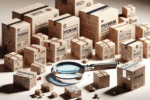Leather care mistakes can lead to irreversible damage to your expensive shoes, and one of the most prevalent errors is using waterproofing spray on smooth leather. While these sprays may appear to be a convenient solution for protecting your footwear, they can interfere with essential nutrients from permeating the leather, which may cause it to dry out and crack over time. Smooth leather shoes are designed with natural water-resistant properties within their grain layer, and they require proper nourishment through shoe creams and waxes to sustain their durability. Instead of using sprays, opt for high-quality leather conditioners and wax polishes that both guard and nourish the leather, ensuring its longevity while preserving its natural characteristics.
Understanding the Essentials of Leather Protection
To ensure the longevity of your leather goods, it’s crucial to grasp their protective qualities. Full grain leather possesses natural water-resistant properties due to its tightly woven fiber structure. However, these properties require diligent maintenance to remain effective. The durability of your leather relies heavily on the care it receives. Using waterproofing sprays can hinder the leather’s ability to breathe, which can lead to significant damage over time if not addressed properly.
Exploring the Natural Advantages of Full Grain Leather
After the tanning process, full grain leather retains its original surface layer, which provides exceptional natural protection. Leather items crafted from this material boast an intact grain layer, offering resistance against water and wear. This top layer is rich in natural oils and fibers that form a protective barrier, making additional waterproofing sprays unnecessary and potentially detrimental to the leather's health.
Understanding Leather's Moisture Regulation and Aging Process
Grain leather must maintain its capacity to absorb and expel moisture. The pores in your leather facilitate its ability to breathe and control moisture, which in turn keeps it pliable and prevents unsightly cracking. However, waterproofing sprays can seal these pores, impeding vital airflow and disrupting the natural moisture balance. Additionally, the aging of leather necessitates appropriate nourishment through conditioning products. When waterproofing sprays are applied, they create a barrier that prevents essential conditioning oils from reaching the leather, which can result in the leather becoming dry and brittle over time. Regular application of leather cream allows your leather to age gracefully and develop a rich, desirable patina.

Avoiding the Common Waterproofing Spray Pitfall
Many individuals believe that waterproofing spray is the ultimate solution for safeguarding their leather shoes, but this widespread practice can lead to significant harm to your footwear. Although these sprays offer an immediate protective barrier against water intrusion, they simultaneously obstruct necessary nutrients from accessing the leather, setting the stage for potential long-term degradation.
Debunking Common Marketing Myths Surrounding Leather Care
With the influence of aggressive marketing campaigns and well-meaning advice from shoe store staff, you may have been led to believe that waterproofing spray is essential for all leather shoes. This misconception has been perpetuated by many shoe retailers, largely due to the high profit margins and frequent repurchase rates associated with these products. The reality is that regular smooth leather possesses natural protective properties that do not require additional spray-on barriers for effective safeguarding.
Evaluating Immediate Benefits Against Long-term Consequences
Damage to your leather shoes initiates when waterproofing sprays form a barrier that prevents essential oils and conditioning agents from saturating the leather. While you may initially notice improved water resistance, the reality is that your leather gradually becomes dry and brittle without the vital nourishment it requires. The ramifications of using waterproofing sprays on smooth leather extend beyond mere surface protection. Your leather needs consistent nourishment to sustain its flexibility and durability. When shoe creams and conditioners cannot permeate the leather due to the spray barrier, the material risks cracking and deterioration, significantly diminishing your shoes’ lifespan. Natural waxes and appropriate conditioning deliver superior long-term protection while fostering the health of the leather.

Delving Into the Science of Leather Care
A fundamental aspect of effective leather care lies in comprehending its molecular structure. The collagen fiber networks within your leather shoes demand both protection and nourishment. When applying products to leather, they can interact with these fibers either by coating them or by penetrating their depths. This interaction is crucial for the long-term health of your leather shoes.
Recognizing the Importance of Nourishing Leather
It is essential to understand that your leather shoes require regular nourishment to uphold their quality. The natural oils within your leather shoes help to prevent cracking and maintain flexibility. Over time, these oils diminish due to normal wear and exposure to environmental factors. To preserve the leather’s structural integrity, it is paramount to replenish these oils through diligent conditioning.
Understanding the Barrier Effects of Waterproofing Sprays
One prominent issue with waterproofing sprays is their tendency to form a barrier. When these sprays are applied to smooth leather, they create an impermeable layer that obstructs both water and essential nutrients. This barrier inhibits your leather care products from effectively penetrating the surface, leading to a gradual decline in the leather’s quality over time.
The barrier effect of waterproofing sprays introduces a problematic cycle for your shoes. While these sprays effectively block water, they simultaneously prevent the absorption of conditioning products that are critical for maintaining the leather's health. As a result, the leather may appear protected on the surface but is actually dehydrating and becoming brittle beneath. Silicone-based sprays are particularly harmful, forming a permanent barrier that is challenging to remove without inflicting damage to the leather.
Implementing Effective Leather Protection Methods
Contrary to common misconceptions, your smooth leather shoes require targeted care methods that align with the natural properties of full-grain leather. The ideal approach harmonizes traditional techniques with products designed to enhance the leather’s innate protective qualities, ensuring both immediate protection and lasting durability for your footwear.
Exploring the Benefits of Wax-based Solutions
A highly effective alternative to waterproofing sprays lies in premium wax-based products. These solutions work synergistically with your leather’s natural grain rather than against it. Applying wax polish creates a protective barrier that still permits the leather to breathe, making it especially beneficial for toe caps and high-wear areas.
Maximizing Benefits from Cream and Conditioner Applications
In contrast to conventional spray treatments, leather creams and conditioners offer crucial nourishment while preserving the leather’s inherent protective properties. Your shoes gain from oils that penetrate deeply into the material, helping to prevent drying and cracking. Additionally, regular application of cream and conditioner creates a cumulative effect that enhances leather quality over time. The natural oils present in these products support the leather’s flexibility and strength, while allowing it to develop a beautiful patina. It is advisable to apply these products every 4-6 wears to uphold optimal leather condition.

Identifying Appropriate Scenarios for Waterproofing Spray Usage
Unlike smooth leather, certain materials greatly benefit from waterproofing sprays. These products create an efficient water-resistant barrier on specific materials that lack innate protection. Waterproofing sprays are particularly advantageous for suede, nubuck, and various textiles, where the material structure does not provide natural resistance to moisture.
Enhancing Suede and Nubuck with Waterproofing Spray
When you treat your suede or nubuck shoes with waterproofing spray, you significantly bolster their resistance to moisture damage. While many modern suede materials come pre-treated with factory waterproofing, additional protection can help maintain this defense over time. The application of spray creates a protective barrier that effectively prevents water from infiltrating these delicate materials.
Ensuring Protection for Textile Footwear
In addition to leather alternatives, textile footwear requires specialized protection against water damage. Materials such as canvas, mesh, and synthetic fabrics can achieve enhanced water resistance through proper spray application. Most textile materials are naturally absorbent, rendering them vulnerable to water damage and staining.
Moreover, waterproofing sprays for textiles help preserve the shape and color of your shoes. The barrier they establish also prevents dirt and debris from becoming embedded in the fabric fibers. It’s recommended to reapply the spray every 3-4 months for optimal protection, based on how often the shoes are worn and prevailing weather conditions.
Insights from Industry Professionals on Leather Care
Not all leather treatments are created equal. Experts in leather care strongly advise against the use of waterproofing sprays on smooth leather. Your full-grain leather shoes require specialized care that allows them to breathe and absorb nourishing treatments. Utilizing inappropriate products can result in leather damage costing hundreds of dollars.
Expert Perspectives from Tannery Specialists
To maintain the quality of leather, tannery specialists emphasize that full-grain leather inherently possesses natural water-resistant properties in its outer layer. Maintaining the leather's protective qualities necessitates the application of oils and waxes. Waterproofing sprays can obstruct these essential treatments from reaching the leather.
Wisdom from Professional Cobblers
For the long-term care of leather, professional cobblers advocate for the use of wax-based products instead of waterproofing sprays. Your shoes will thrive from treatments that both protect and nourish the leather. Data indicates that 90% of premature leather damage stems from the use of incorrect care products.
By adhering to proper leather care techniques, your shoes can last an impressive 15-20 years instead of just 2-3 years with poor maintenance. Traditional wax treatments allow leather to maintain its natural attributes while providing adequate moisture protection. Your investment in quality leather footwear deserves meticulous care practices that preserve both aesthetic appeal and durability.
Key Takeaways for Optimal Leather Care
In conclusion, your smooth leather shoes require appropriate care that excludes waterproofing sprays. Instead, opt for shoe creams and waxes that nourish the leather while providing effective water protection. Full-grain leather inherently possesses natural protective qualities due to its grain layer, and waterproofing sprays may obstruct essential oils from permeating the leather, leading to dryness and cracking. Reserve waterproofing sprays for suede, nubuck, or textile footwear where they can perform effectively. By selecting the right products, you can safeguard your leather shoes while ensuring their longevity.
Frequently Asked Questions about Leather Care
Q: Why is waterproofing spray detrimental to smooth leather shoes?
A: Waterproofing spray forms a barrier on leather that obstructs essential oils and conditioners from penetrating the material. While it does offer water protection, it hinders the necessary nourishment of the leather, leading to drying and potential cracking over time, ultimately reducing the lifespan of the shoes.
Q: What alternatives should I use instead of waterproofing spray on smooth leather shoes?
A: Consider using a combination of shoe cream and wax polish instead. Shoe cream provides essential oils to nourish the leather, while wax polish creates a protective layer that helps repel water. This method works harmoniously with the natural protective properties of full-grain leather, maintaining the leather’s health while offering effective water resistance.
Q: Which types of footwear can I safely apply waterproofing spray to?
A: Waterproofing spray is suitable for materials such as suede, nubuck, and textiles. These materials lack the natural protection found in smooth leather and thus benefit from the protective barrier created by waterproofing sprays. Many modern suedes and nubucks may already have factory waterproofing treatments, but additional spray applications can enhance and maintain this level of protection.
The Article Why you shouldn’t use waterproofing spray on regular smooth leather and better alternatives appeared first on My Shoes Finder





3 Responses